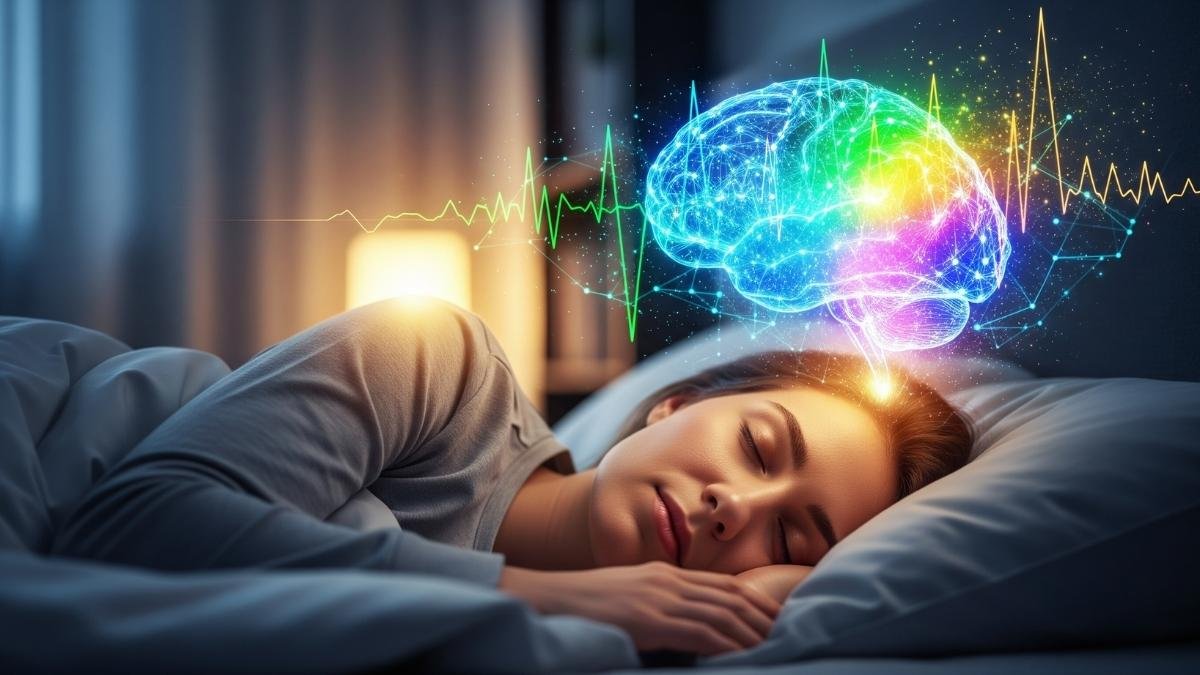
Have you ever wondered what’s actually happening inside your head while you’re catching those Z’s?
Here’s something that’ll blow your mind: Your brain literally shrinks by 60% every single night. And before you panic—this isn’t brain damage. It’s actually the most incredible thing your brain does.
Scientists just figured out that your brain has been running a secret cleaning operation this whole time. Every 90 minutes while you sleep, your brain cells squeeze themselves down like tiny sponges, creating superhighways for a specialized cleaning fluid to wash away all the toxic junk that builds up during your day.
Miss too many of these cleaning cycles? Your brain ages 1-2 years in just 24 hours. But here’s the amazing part—get one good night’s sleep, and that aging reverses completely.
Yeah, I know. It sounds like science fiction, but this is real. Let me tell you the whole wild story.
Your Brain’s Hidden Dishwasher Just Got Discovered
🧠 The Glymphatic System: Your Brain’s Night Shift
Sleep Begins
Norepinephrine levels drop, signaling cleanup mode activation
Cell Contraction
Brain cells shrink to 60% of normal size, creating superhighways
Fluid Rush
Cerebrospinal fluid flows 10x faster through expanded channels
Waste Removal
Toxic proteins and metabolic waste get flushed out of the brain
You’ve got the world’s most sophisticated dishwasher, but it only runs at night when you’re not looking. That’s basically what scientists discovered about your brain in 2013.
Dr. Maiken Nedergaard and her team at the University of Rochester were the first to actually see this happening. They called it the “glymphatic system”—think of it as your brain’s personal cleaning crew.
Here’s what happens every night while you’re unconscious:
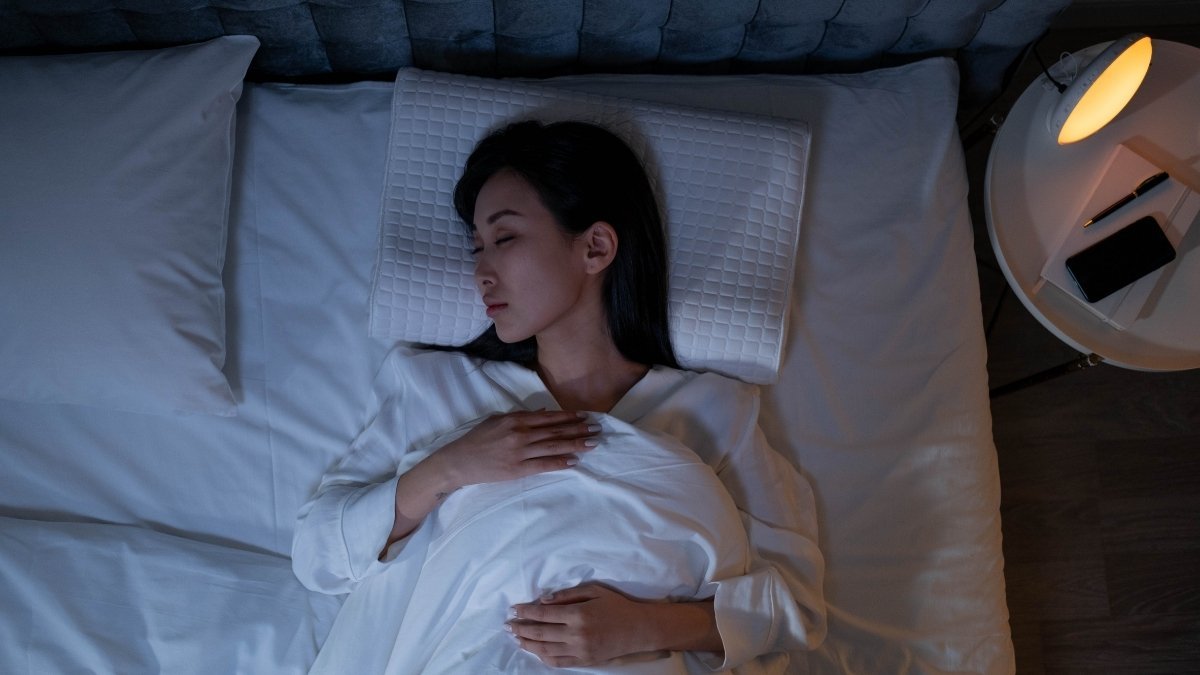
Your brain produces a chemical called norepinephrine during the day. When you fall asleep, those levels drop dramatically. This is like flipping a switch that tells your brain cells: “Time for deep cleaning mode!”
Within minutes, something incredible happens. Your brain cells literally shrink to 60% of their normal size. If every room in your house suddenly got 40% bigger—that’s what’s happening in your head.
This creates massive highways between your brain cells. Then, cerebrospinal fluid—basically your brain’s cleaning solution—starts flowing through these channels at 10 times the normal speed.
But wait, it gets cooler.
Your blood vessels start contracting rhythmically every 50 seconds, acting like tiny pumps. They’re literally pushing this cleaning fluid through your brain tissue with mechanical precision.
The fluid picks up all the metabolic trash that accumulated during your day. We’re talking about toxic proteins, cellular waste, and all the gunk that would turn your brain into a junkyard if it weren’t constantly cleaned out.
Dr. Nedergaard put it perfectly: “During sleep, this brain washing system gets turned on.”
One Sleepless Night = Instant Brain Aging (But There’s Hope)
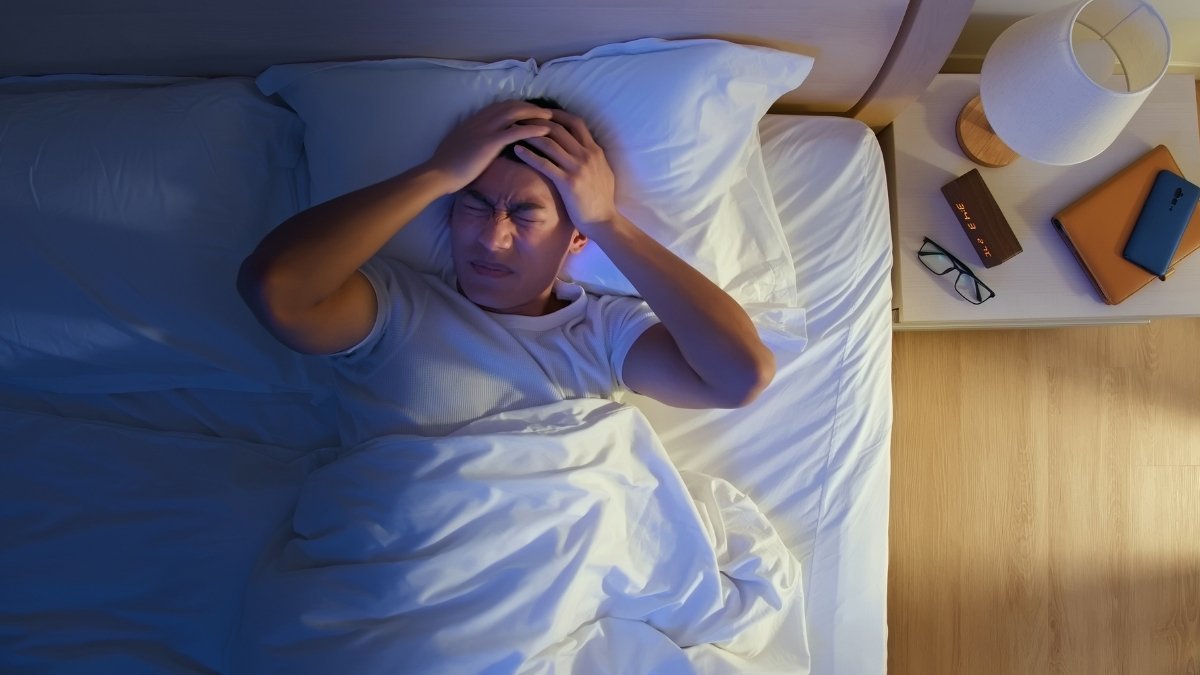
Okay, this next part might freak you out a little, but stick with me because there’s a happy ending.
Remember pulling all-nighters in college? Or those nights when your baby kept you up, or work stress had you tossing and turning? Well, scientists just discovered what those nights actually did to your brain.
A single night without sleep ages your brain by 1-2 years.
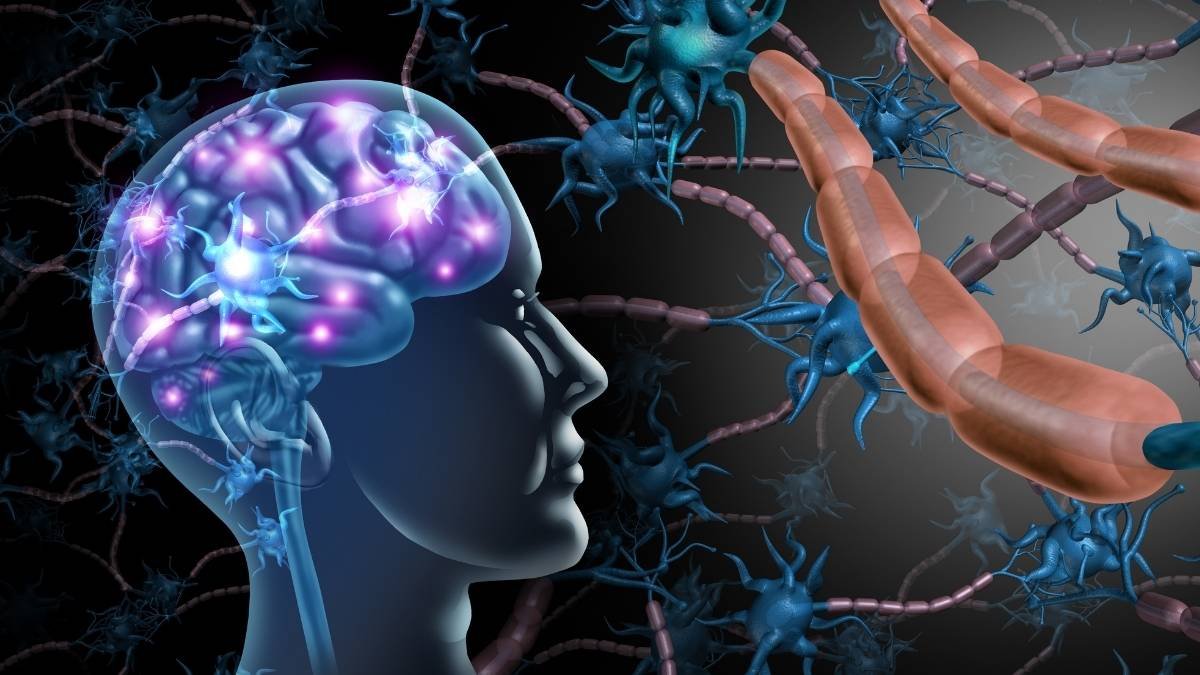
I’m not talking about feeling older—I mean actual structural changes visible on brain scans. Researchers in 2023 studied 134 healthy people and used AI to analyze their brain images. After just 24-48 hours without sleep, the machine could literally see that their brains looked years older.
But here’s where it gets really wild: After 32 hours awake, 37% of the right side of their brain and 16% of the left side showed structural changes. Areas controlling attention, hearing, and pain management all started breaking down.
The brain’s cleaning system? It completely failed. Norwegian researchers found that without sleep, toxic proteins just sit there, building up like dishes in your sink when you skip washing them for a week.
“Humans do not catch up on lost sleep,” the researchers warned. Even one recovery night couldn’t fully restore the cleaning system.
Now for the good news that’ll make you feel so much better:
That’s brain aging. It completely reverses after one good night’s sleep.
Your brain is incredibly resilient. Those extra years of aging disappear when you give your cleaning system the time it needs to do its job. It’s like magic, except it’s science.
Why Pilots, Surgeons, and Athletes Are Terrified of Bad Sleep
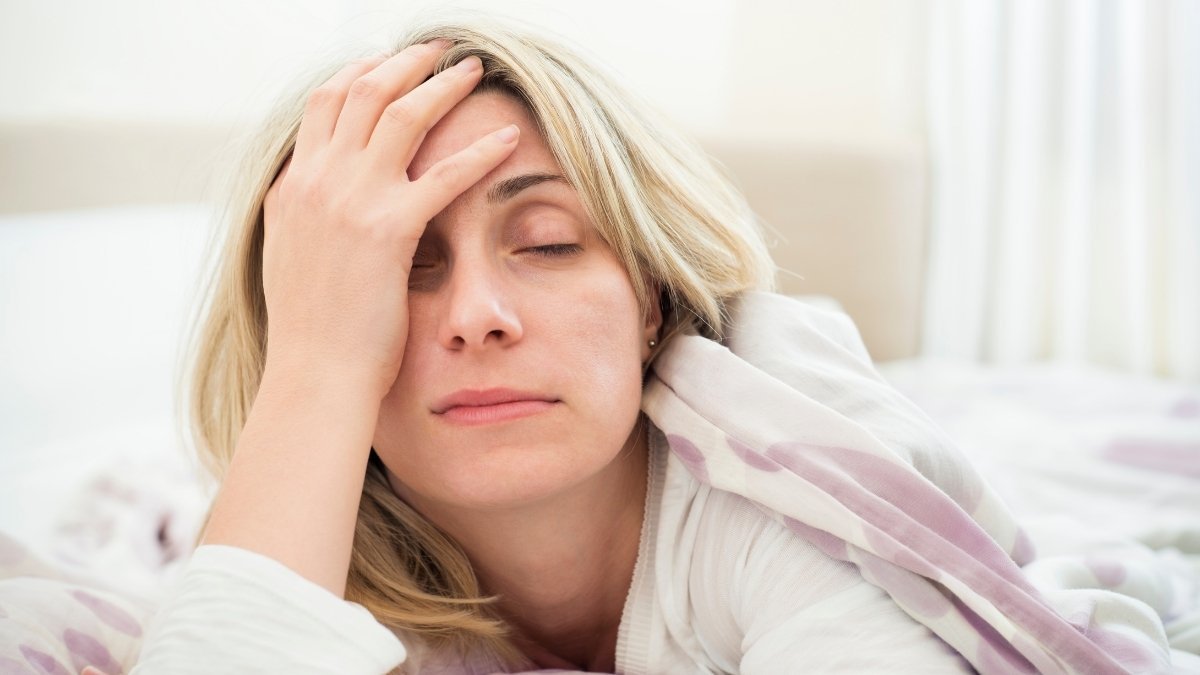
Want to see what happens when real people miss their brain cleaning cycles? The data is honestly scary.
Pilots who pulled all-nighters made twice as many errors. Their reaction time to warning lights went from 1.5 seconds to 2.5 seconds. When you’re flying at 500 mph, that extra second could be the difference between life and death.
Medical residents working those brutal 24+ hour shifts? They made 36% more serious medical errors compared to colleagues who worked 16-hour shifts. Sleep-deprived surgeons took 14% longer to complete operations and made 20% more mistakes.
I don’t know about you, but I definitely don’t want my surgeon running on no sleep.
The sports world figured this out fast. Stanford basketball players who bumped their sleep from 7 to 10 hours improved their free-throw accuracy by 9% and got faster sprint times. Tennis players were even more dramatic—after sleep deprivation, their serve accuracy dropped by up to 53%.
Think about that. We’d never let pilots fly drunk, but moderate sleep deprivation (being awake 17-19 hours) impairs you just as much as being legally intoxicated.
Yet we do it to ourselves all the time.
Your Brain’s Nightly Memory Makeover
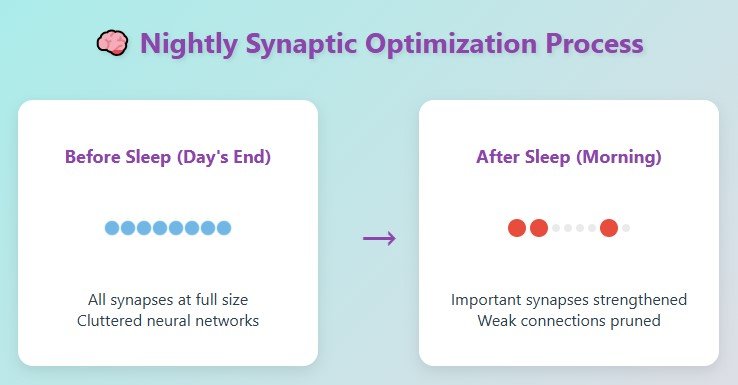
Every night, your brain becomes like the world’s smartest editor. It doesn’t just clean house—it completely reorganizes your memories.
University of Wisconsin researchers looked at thousands of brain connections and discovered something amazing: Sleep shrinks your synapses by 18-20% on average, but it’s super selective about which ones.
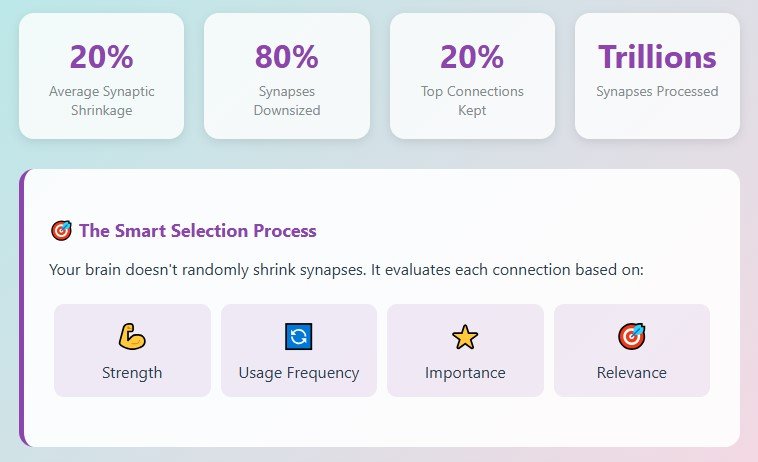
Your brain evaluates every single connection and keeps only the best ones. About 80% of synapses get downsized while the top 20%—your most important memories and skills—get preserved and strengthened.
Dr. Chiara Cirelli explains it beautifully: “During sleep, we are much less preoccupied by the external world, and the brain can sample all our synapses, and renormalize them in a smart way.”

It’s like your brain is Marie Kondo-ing your memories every night. “Does this memory spark joy and help me function? Keep it and make it stronger. Everything else? Thanks, but you’re taking up space I need for tomorrow.”
This happens in trillions of synapses across your entire cortex. Every. Single. Night.
No wonder you wake up with clearer thinking and better problem-solving abilities after good sleep. Your brain literally reorganized itself to work better.
The Discovery That Changed Everything We Know About Sleep
🔬 Evolution of Sleep Science: From Mystery to Marvel
🏆 Science Magazine “Breakthrough of the Year”
The glymphatic system discovery was so groundbreaking it earned the highest honor in scientific research
For decades, scientists thought sleep was basically your brain taking a break. Boy, were they wrong.
Back in the 1920s, Dr. Nathaniel Kleitman opened the first sleep lab. He saw sleep as just… less activity. By the 1950s, researchers discovered REM sleep and dreaming, but sleep still seemed like downtime.
Then Dr. Maiken Nedergaard came along and blew everyone’s minds.
In 2012, her team was studying mouse brains when they discovered something nobody had ever seen before. “We immediately realized this is super important, and it hasn’t been described before,” she remembers.
They were watching cerebrospinal fluid flow through sleeping mouse brains for the first time in history. The discovery was so groundbreaking that Science Magazine named it “Breakthrough of the Year.”
Dr. Jeffrey Iliff, who co-discovered the system, initially called it “a brain-wide perivascular network for cellular exchange.” After saying that mouthful repeatedly, he realized they needed a better name. Enter the “glymphatic system”—combining glial cells (brain support cells) with lymphatic function.
This discovery completely revolutionized neuroscience. Harvard’s Dr. Charles Czeisler called it “the first direct experimental evidence at the molecular level” for why we actually need sleep.
We weren’t just resting. We were running the most sophisticated cleaning operation in the universe.
Your Sleep Cycles Are as Unique as Your Fingerprint
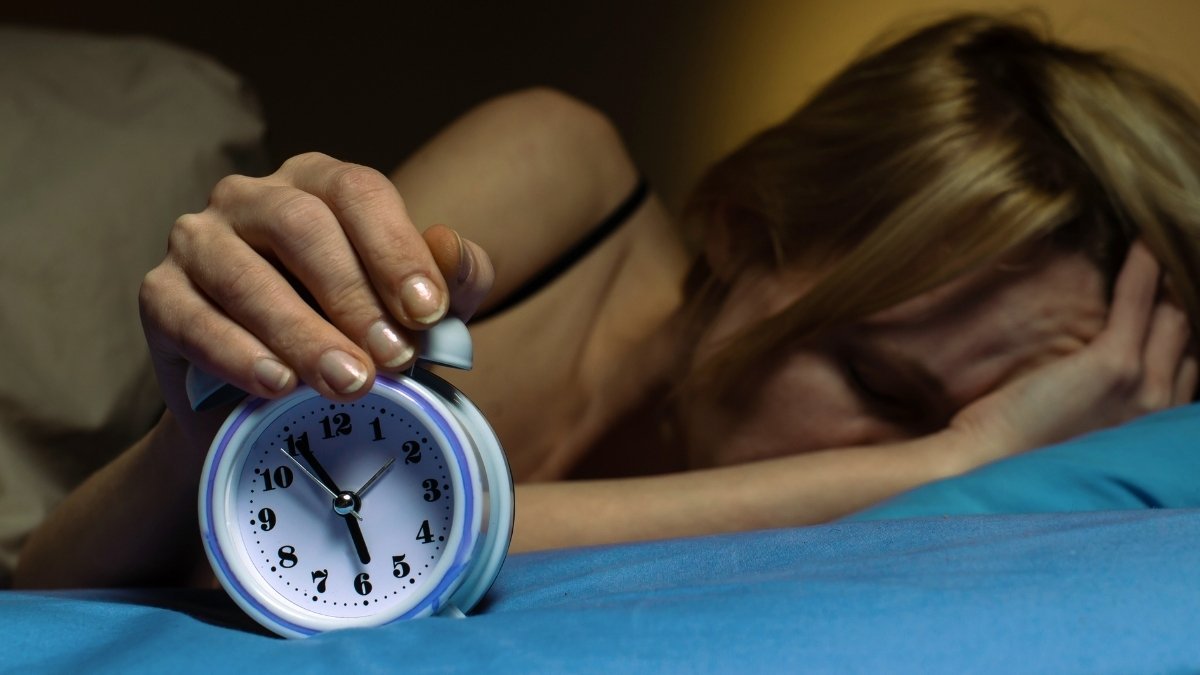
Here’s something that might surprise you: That famous “90-minute sleep cycle” isn’t actually 90 minutes for most people.
Recent research analyzing over 6,000 sleep studies found the median cycle is actually 96 minutes, with huge variations between individuals. Some people naturally cycle every 70 minutes, others every 120 minutes.
And remember those “8 hours of sleep” recommendations? Turns out your chronotype—whether you’re a night owl or early bird—matters way more than we thought.
Night owls forced to wake up early suffer big-time. Their brains literally aren’t ready for peak performance in the morning hours. Studies show significant impairments in reaction time, executive function, and even physical strength.
Your body’s melatonin production varies by almost 2 hours between different chronotypes. Some people’s brains aren’t biologically ready for sleep until much later than traditional schedules assume.
This is why forcing yourself into someone else’s sleep schedule often fails. Your brain chemistry has its own timeline.
The Alzheimer’s Connection That Should Scare You Into Better Sleep
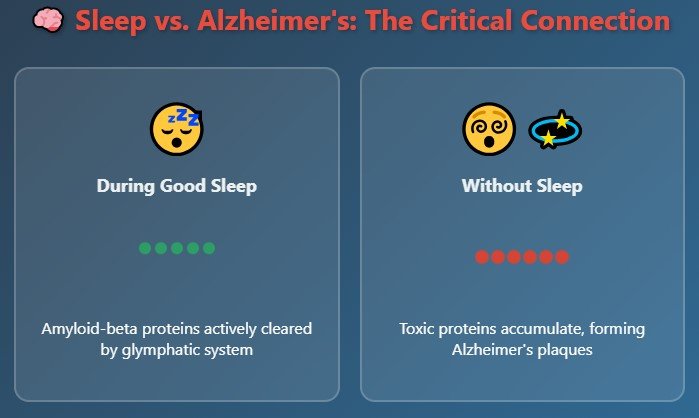
This might be the most important part of this whole story.
Those toxic proteins your brain cleans out every night? One of them is amyloid-beta—the main ingredient in Alzheimer’s plaques.
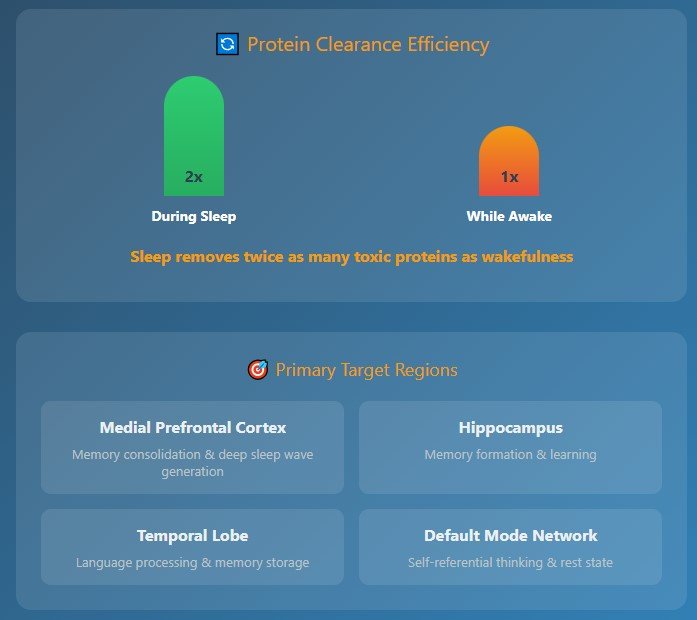
Dr. Matthew Walker’s research shows these proteins accumulate specifically in your medial prefrontal cortex during wakefulness. This is the exact brain region that generates the deep sleep waves essential for memory consolidation.
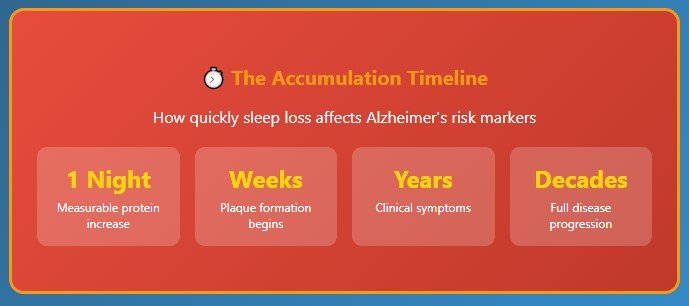
Even one night of bad sleep measurably increases these toxic protein levels in your brain. Your sleep cycles are literally your nightly defense against dementia.
The glymphatic system removes twice as many toxic proteins during sleep compared to when you’re awake. Miss those cleaning cycles consistently, and you’re basically letting Alzheimer’s ingredients pile up in your brain.
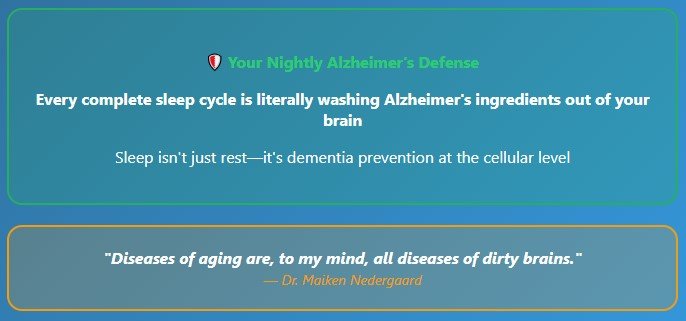
Dr. Nedergaard puts it starkly: “Why should you care about this? You should probably care because diseases of aging are, to my mind, all diseases of dirty brains.”
Sleep keeps your brain clean. No sleep = dirty brain = higher dementia risk decades later.
That’s a sobering thought that should make prioritizing sleep feel a lot more urgent.
What Happens When You Actually Get Enough Sleep

Ready for some good news? Athletic studies consistently show that extending sleep from typical 7-hour nights to 10 hours produces improvements across the board—reaction time, accuracy, strength, and mood.
This suggests that what we consider “adequate” sleep might actually be chronic sleep restriction for many people. Your brain’s performance ceiling might be way higher than you realize.
The recovery research is encouraging, too. Unlike months of insufficient sleep (which do lasting damage), occasional all-nighters bounce back relatively quickly when you prioritize complete sleep cycles afterward.
Your brain wants to perform optimally. You just have to give it the restoration time it needs.
How to Actually Use This Science

Knowing all this is great, but what do you actually do with it?
Focus on complete cycles, not just total hours. Most adults need 4-6 complete cycles per night. If your natural cycle is 96 minutes, that’s about 6.4 to 9.6 hours—not the generic “8 hours” everyone talks about.
Time your bedtime to your chronotype. Going to bed when your brain is naturally ready produces better results than longer sleep that fights your biology.
For high-stakes professions: Don’t rely on how you feel to judge if you’re sleep-deprived. People consistently underestimate impairment. If lives depend on your performance, prioritize objective sleep tracking.
Think of sleep as an investment, not lost time. Every complete 90-minute cycle represents measurable improvements in memory consolidation, waste removal, and cognitive restoration—changes visible on brain scans within hours.
The Bottom Line That Changes Everything
🧠 The Sleep Revolution: What Science Just Discovered
Toxins accumulating
Limited cleaning
Superhighway cleaning
Toxic waste removal
This isn’t brain damage—it’s the most sophisticated restoration system ever discovered
- Brain ages 1-2 years in 24 hours
- Pilot errors double (+100%)
- Medical errors increase 36%
- Athletic accuracy drops 53%
- Toxic protein buildup begins
- Memory consolidation fails
- Alzheimer’s risk increases
- Brain aging completely reverses
- Athletic performance improves 9%
- Reaction times optimize
- Memory consolidates perfectly
- Toxic proteins cleared 2x faster
- Synapses optimized (18-20% pruning)
- Dementia protection activated
🌟 Tonight’s Mission
Give your brain permission to shrink, clean, and restore itself
That’s not just rest. That’s brain optimization at the cellular level.
Sweet dreams. Your brain’s got serious work to do.
Your brain shrinking 60% every night isn’t something to fear—it’s the most elegant solution to biological maintenance ever discovered.
Those 90-minute cycles aren’t just “rest time.” They’re precision cleaning operations that determine whether your brain ages normally or accelerates toward decline.
The stakes are real: Miss these cycles consistently, and you trigger immediate brain aging, impair waste clearance, and increase long-term dementia risk.
But the hope is real too: Your brain’s remarkable ability to reverse damage means prioritizing complete sleep cycles can restore optimal function in a single night.
This research transforms sleep from a lifestyle choice into a medical necessity. Your nightly brain shrinkage isn’t damage—it’s the most sophisticated cleaning system ever discovered.
The question isn’t whether you can afford to prioritize sleep.
The question is: Can you afford not to?
Tonight, when you lay your head on your pillow, remember—you’re not just going to sleep. You’re giving your brain permission to shrink, clean, and restore itself for peak performance tomorrow. That’s not just rest. That’s brain optimization at the cellular level.
Sweet dreams. Your brain’s got some serious work to do.






